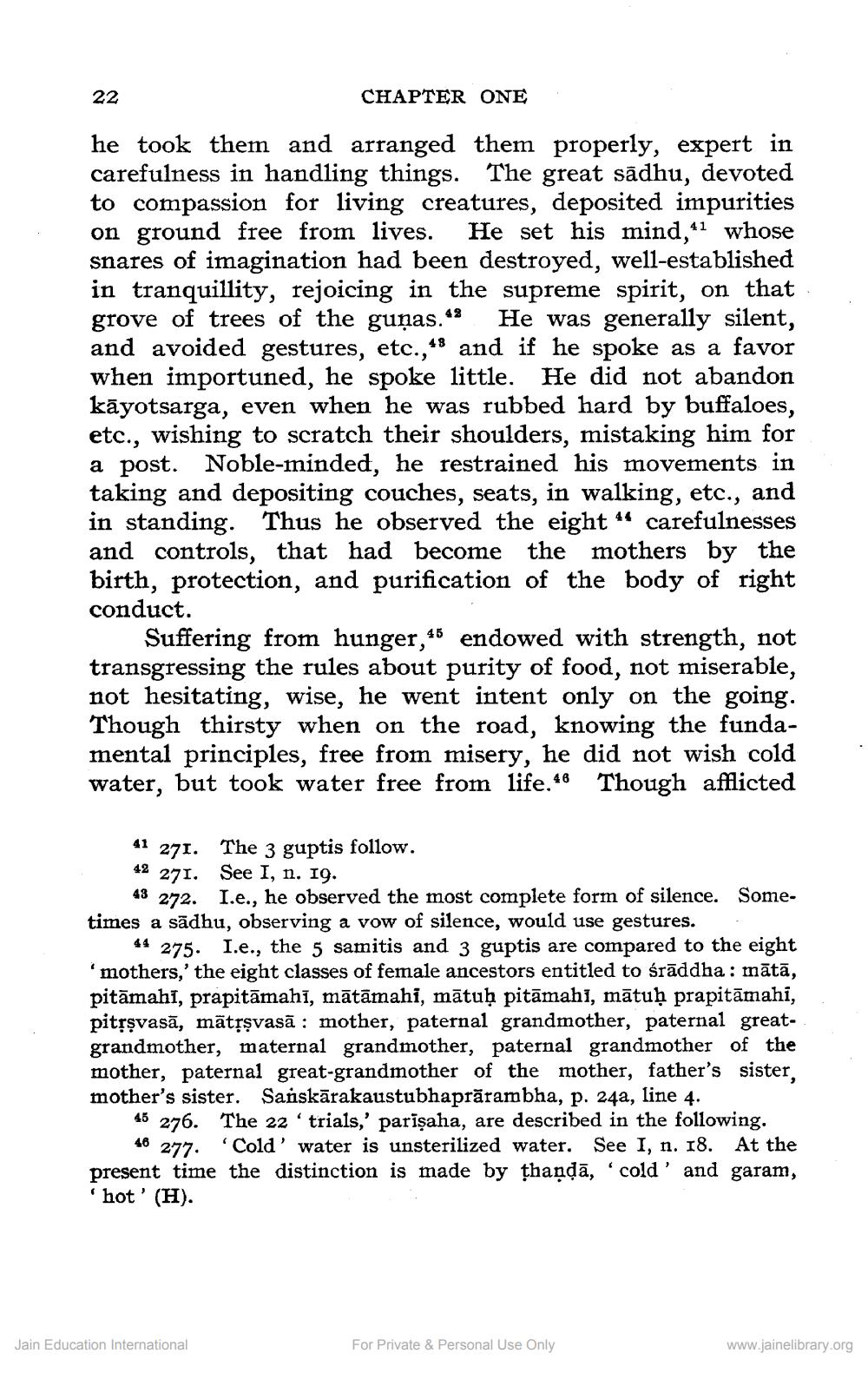________________
22
CHAPTER ONE
he took them and arranged them properly, expert in carefulness in handling things. The great sādhu, devoted to compassion for living creatures, deposited impurities on ground free from lives. He set his mind, 41 whose snares of imagination had been destroyed, well-established in tranquillity, rejoicing in the supreme spirit, on that grove of trees of the guņas.48 He was generally silent, and avoided gestures, etc., 48 and if he spoke as a favor when importuned, he spoke little. He did not abandon kāyotsarga, even when he was rubbed hard by buffaloes, etc., wishing to scratch their shoulders, mistaking him for a post. Noble-minded, he restrained his movements in taking and depositing couches, seats, in walking, etc., and in standing. Thus he observed the eight " carefulnesses and controls, that had become the mothers by the birth, protection, and purification of the body of right conduct.
Suffering from hunger, 45 endowed with strength, not transgressing the rules about purity of food, not miserable, not hesitating, wise, he went intent only on the going.
Though thirsty when on the road, knowing the fundamental principles, free from misery, he did not wish cold water, but took water free from life. 46 Though afflicted
41 271. The 3 guptis follow. 42 271. See I, n. 19.
43 272. I.e., he observed the most complete form of silence. Sometimes a sādhu, observing a vow of silence, would use gestures. .
44 275. I.e., the 5 samitis and 3 guptis are compared to the eight mothers,' the eight classes of female ancestors entitled to śrāddha: mātā, pitāmahi, prapitāmahī, mātāmahi, mātuh pitāmahi, mātuḥ prapitāmahi, pitsşvasā, mātņşvasā: mother, paternal grandmother, paternal greatgrandmother, maternal grandmother, paternal grandmother of the mother, paternal great-grandmother of the mother, father's sister. mother's sister. Sanskārakaustubhaprārambha, p. 24a, line 4.
45 276. The 22 'trials,' parişaha, are described in the following.
6 277. Cold' water is unsterilized water. See I, n. 18. At the present time the distinction is made by thanļā, 'cold' and garam, 'hot' (H).
Jain Education International
For Private & Personal Use Only
www.jainelibrary.org




